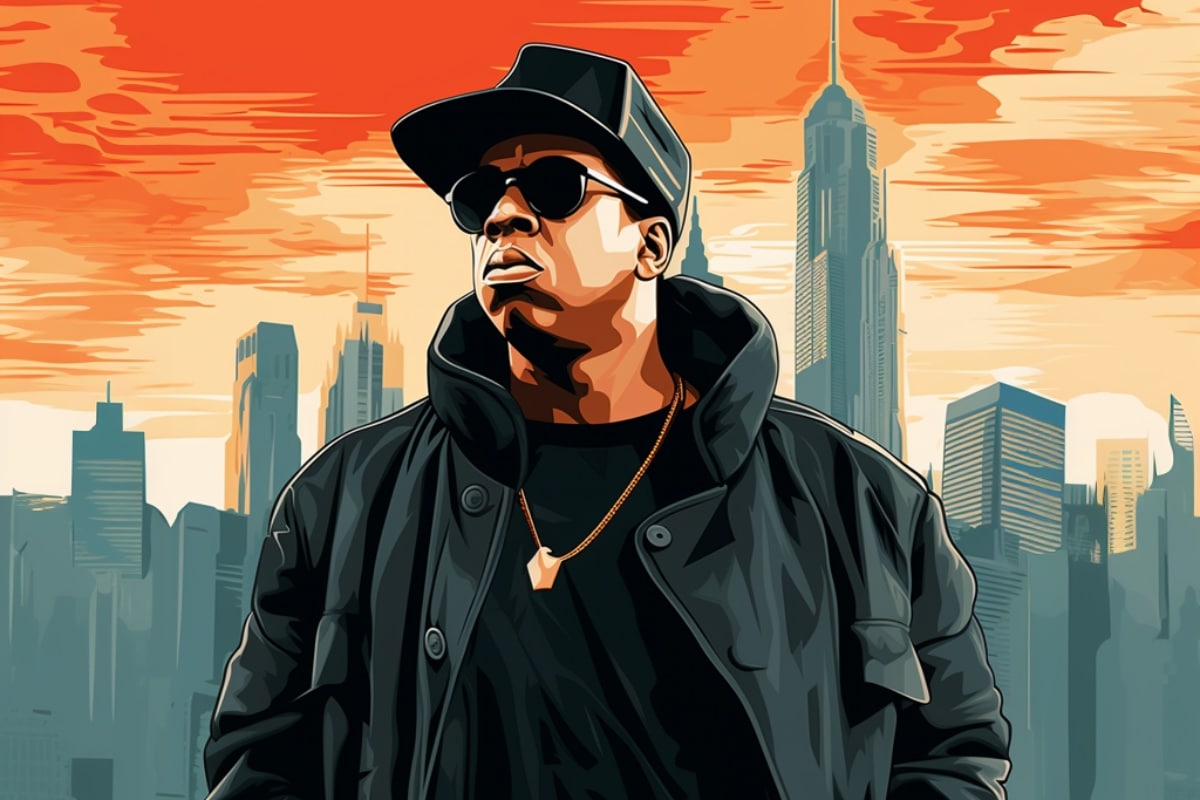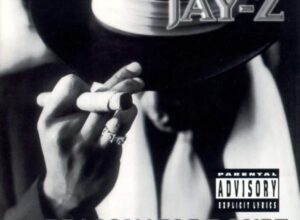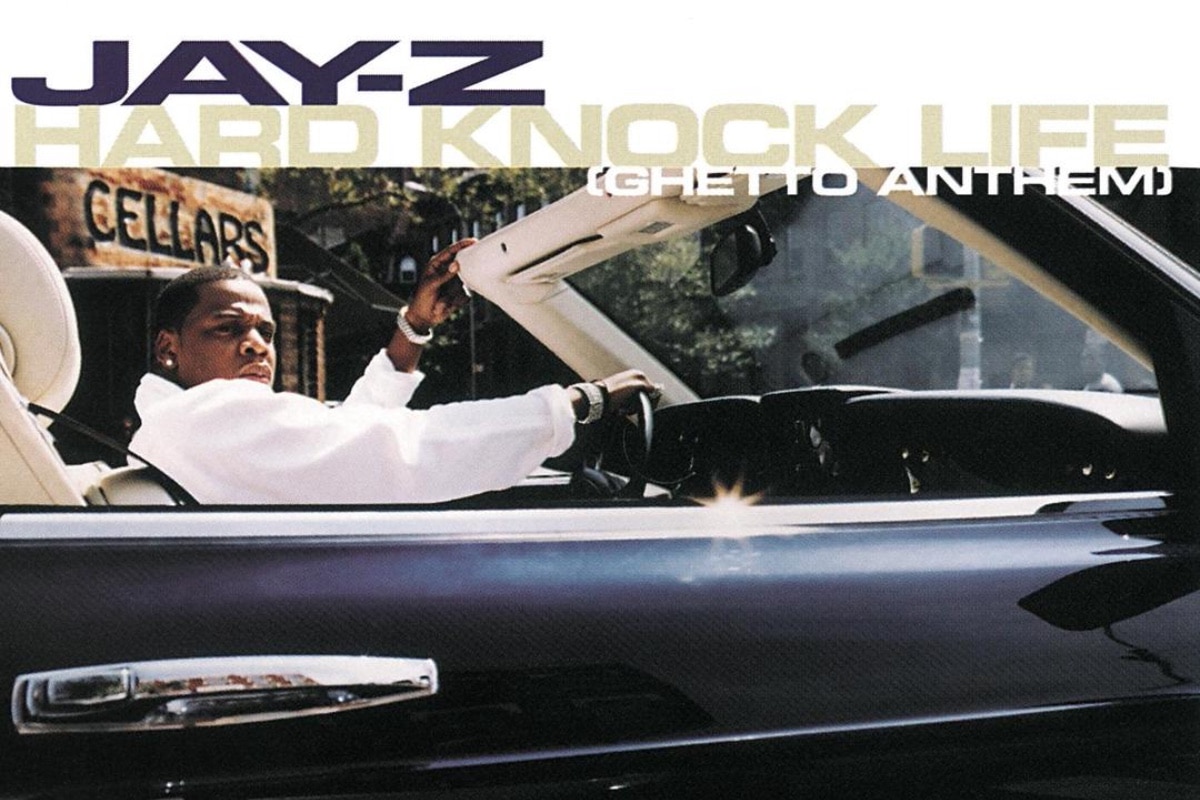When it comes to lyricism and storytelling paired with dynamic beats, few artists can match the prowess of hip-hop heavyweight JAY-Z. His 2017 studio album release, ‘4:44,’ was a watershed moment in his career, a powerful reflection of personal growth and cultural commentary pulsing with the heartbeat of 21st-century America. This opus navigated complex themes, weaving narratives about infidelity, cultural identity, and generational wealth. But to fully grasp the depth of the lyricism, one must dissect each track on this magnum opus.
From the self-reflective opener “Kill Jay Z” to the raw introspection of “4:44” to the timeless narrative “Legacy,” ‘4:44’ provides a goldmine for analysis. Also featuring distinctly impactful tracks like “The Story of O.J.,” “Smile,” “Caught Their Eyes,” “Family Feud,” “Bam,” and “Moonlight,” the album tells a story that’s deeply rooted in hip-hop culture and Black experience.
So let’s get into it. From legacy crafting to self-revelation, here’s we are breaking down the lyrics meaning of the ‘4:44’ album by ‘JAY-Z’.
1 Kill Jay Z
Hova is brutally honest, admitting his past mistakes and reflecting on his life’s trajectory with remorse. The track acts as a self-reckoning, with JAY-Z talking to his alter ego, urging him to let go of the machismo and ego that’s held him back. He touches on personal events, like shooting his brother, dealing drugs to loved ones, the infamous Solange elevator incident, and almost losing Beyoncé, among others. He reveals how these experiences impacted him and shaped the man he’s become. JAY-Z also addresses his fallout with Kanye West, suggesting Kanye crossed the line. The song is raw and real; it’s JAY-Z tearing down the larger-than-life persona he’d built, pledging to do better for the sake of his family, especially his daughter, Blue. It’s not just a track; it’s an apology, a confession, and a wake-up call.
2 The Story of O.J.
The track dives into the deep end of race and wealth in modern America, and Jay doesn’t pull any punches. He starts off exploring the complex spectrum of black identity, challenging the divisive stereotypes within the black community. He then speaks directly to O.J. Simpson’s infamous claim, “I’m not black, I’m O.J.,” countering that, regardless of status or wealth, systemic racism persists. Beyond racial politics, the Brooklyn mogul drops gems on wealth accumulation and financial literacy. He talks about the value of credit over cash, the wisdom of investing in property and art, and the folly of flaunting wealth without understanding how to grow it. True to form, JAY-Z painted vivid socio-economic realities over a dope beat, providing food for the mind as well as the soul.
3 Smile
The track takes us on an intimate journey as Hov explores themes of emotional resilience, mental health, and the quest for authenticity amidst societal pressures. He spits about challenging the status quo, evolving from his past, and embracing the pain as a stepping stone to new beginnings.
One of the profound moments in the track is when he talks about his mother’s struggle with her sexuality, demonstrating a raw honesty rarely seen in hip-hop. It’s about breaking the chains of societal expectations, about being true to oneself, regardless of the odds. He also delves into the economic realities of black America, the trap of the drug trade, and the dichotomy of ‘free enterprise.’ Lastly, he states his position as a god in the flesh, a true and living testament of overcoming hardships, asserting his superiority over those who doubted him. “Smile” is an insight into JAY-Z’s evolution as an artist and an individual, a reflective Anthology of strength, struggle, and ultimate triumph.
4 Caught Their Eyes
This track has Jay bringing complex lyricism straight from the heart of Brooklyn, dissecting everything from his street past to cynicism about industry fakes. The message is clear: he’s been through the wringer, seen the deceit, and isn’t fooled by facades. The haunting lines about friends killing friends draw deep from his experiences growing up in Marcy Projects. His disillusionment with the industry is scathingly clear as he lambasts posthumous exploitation of Prince’s estate, hinting at the greed and insensitivity rampant in the music industry. While most of the album is soaked in remorse and reflection, “Caught Their Eyes” takes a darker, more confrontational turn. It’s JAY-Z shattering illusions, unmasking falsehoods, and peeling back the glitz to reveal a stark reality.
5 4:44
A marked departure from the braggadocio that often populates Hov’s verses, here we find a candid confession from the mogulin himself. The song reads like an open letter, dedicated to the women in his life he’s wronged, particularly his wife, Beyoncé. Titularly, “4:44” signifies the time he woke up to write this ditty, cementing the raw, confessional nature of the lyrics.
Each bar of the track is saturated with regret, as JAY-Z acknowledges his infidelity, the emotional distress it caused, and the cascading effects on their offspring. A standout moment is when he grapples with the prospect of his kids discovering his indiscretions. The introspective expression of regret reaches a poignant peak, as JAY-Z rues time ‘wasted on all this basic shit’ and implores for a second chance at love. While acknowledging his past faults, he also shows a deep longing for reconciliation and growth. This isn’t the hustler from Marcy projects; it’s the wisdom-drenched voice of a man who’s lived his truth, however bitter it might taste.
6 Family Feud
Jigga tackles familiar themes of wealth and legacy, but what sets this joint apart is his sobering call for unity. He critiques generational differences and the tension they breed, referencing icons from 2Pac to Biggie. Never one to shy away from a flex, Jigga asserts his place in the billionaire club, simultaneously highlighting the change from his days dealing crack cocaine to owning Black businesses.
He jokes about his own vanity (“Ain’t no such thing as an ugly billionaire, I’m cute”) but also wields brutal honesty towards his past transgressions and mistakes. Crucially, Hov ties it all back to familial bonds, insisting on the paramount importance of taking care of one’s family, a nod to his wife, Beyoncé. Ultimately, “Family Feud” affirms that the path to progress lies in unity, a lesson both deeply personal and universally applicable.
7 Bam
He draws a vivid picture of his past immersed in the drug trade, alluding to his hustle in the projects and the need for an aggressive ego in an unforgiving environment. Beyond just flaunting wealth and opulence, JAY-Z sprinkles in snippets of his journey, from a ‘runner’ to an influential figure in hip-hop. He cleverly uses the ceremonial phrase ‘Once upon a time in the projects’ to signify his evolution from the hustling Shawn to the rap mogul Hov. Through the line ‘Don’t you never forget, Jigga got this shit poppin”, he reminds naysayers of his creative impact on the genre. In essence, “Bam” serves as an anthem of survival and success, a testament to his resilience, a nod to his past, and a challenge to his detractors.
8 Moonlight
His lyrics dissect the culture of competitive duplication, where rappers aim to emulate each other’s flows, watches, and even romantic pursuits. It’s a devastating image of the genre’s stagnation, with his pointed query, ‘I don’t know who is who’ capturing this perfectly.
JAY-Z also explores the issue of artists losing the rights to their music, a scenario he compares to the treatment of the iconic musician Lauryn Hill. He argues that artists are left in dire straits financially, while industry executives profit from their work. Further, he implores his peers not to glorify violence and advises against incriminating themselves on social media. Overall, “Moonlight” sees JAY-Z embarking on a campaign of awareness and advice to his fellow artists, using his own experiences as an example and call to action.
9 Marcy Me
The lyrics ambitiously span decades, with JAY-Z reminiscing about cooking coke in the kitchen, making references to cultural icons like Pam from Martin and Slick Rick’s Mona Lisa, all the way to his current status as a global influencer. The song is a deeply poetic narrative, showcasing his dynamic evolution from street hustler to music mogul.
Not only does it underscore JAY-Z’s rise to prominence, but the track also pays homage to the hip-hop culture and the artistic giants that came before him. The soulful single serves as a love letter to the Brooklyn streets that birthed and nurtured his immense talent—streets that, as he puts it, are his “artery, the vein of his existence”.
“Marcy Me” is a fresh testament to JAY-Z’s ability to spin compelling narratives, infusing his music with social commentary and bridging the gap between his past struggles and current triumphs—a feat only an artist of his calibre could accomplish.
10 Legacy
He divulges his intention to leave a lasting financial legacy for his kin, pointing to the potential his wealth has to fund educational initiatives and pave the way for black excellence.
The lyrical depth doesn’t stop there. Jay delves into his complicated personal history, speaking about his preacher father and the distance this created. He acknowledges the spiritual journey it sparked, leading him to explore multiple religions. The track morphs into a poignant reflection on the cyclical nature of life – running hard just to stay in place – and the complex legacy shaped by the choices we make. Ultimately, “Legacy” serves as a valedictory note that underscores Jay’s determination to uplift his community and secure his family’s future.









